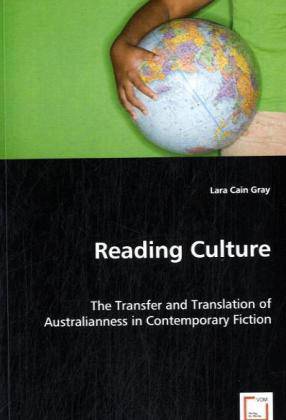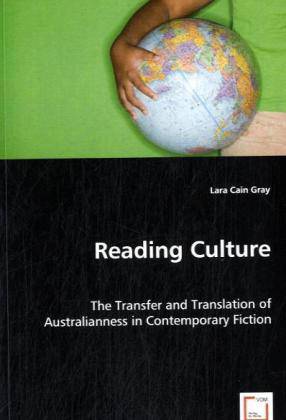
- Afhalen na 1 uur in een winkel met voorraad
- Gratis thuislevering in België vanaf € 30
- Ruim aanbod met 7 miljoen producten
- Afhalen na 1 uur in een winkel met voorraad
- Gratis thuislevering in België vanaf € 30
- Ruim aanbod met 7 miljoen producten
Zoeken
Reading Culture
The Transfer and Translation of Australianness in Contemporary Fiction
Lara Cain Gray
Paperback | Engels
€ 67,45
+ 134 punten
Omschrijving
Reading culture has a dual meaning: the way in which people read (make sense of) images of culture and the reading culture of a community (the conditions in which readers and texts exist together). In the contemporary reading environment, understanding of the depictions of culture found in a novel is influenced by publicity and promotion, educational institutions, book stores, funding bodies and other links between the reading public and the production and sale of books. This study draws on translation theory to show that all of these interested parties act as translators of the text, making it available and comprehensible to new readers. Using contemporary Australian fiction, this examination of the movement of culturally-specific texts from their places of origin into other cultural markets will show that no text is read without some form of translation. This highlights hitherto unexplored aspects of the marketing of fiction, and the nature of reading cultures, which will interest authors, readers, pub-lishers and translators, along with the many funding bodies who support them.
Specificaties
Betrokkenen
- Auteur(s):
- Uitgeverij:
Inhoud
- Aantal bladzijden:
- 196
- Taal:
- Engels
Eigenschappen
- Productcode (EAN):
- 9783639045031
- Verschijningsdatum:
- 18/06/2008
- Uitvoering:
- Paperback
- Formaat:
- Trade paperback (VS)
- Afmetingen:
- 152 mm x 229 mm
- Gewicht:
- 267 g

Alleen bij Standaard Boekhandel
+ 134 punten op je klantenkaart van Standaard Boekhandel
Beoordelingen
We publiceren alleen reviews die voldoen aan de voorwaarden voor reviews. Bekijk onze voorwaarden voor reviews.











